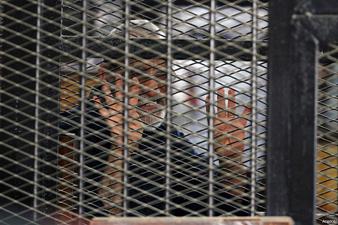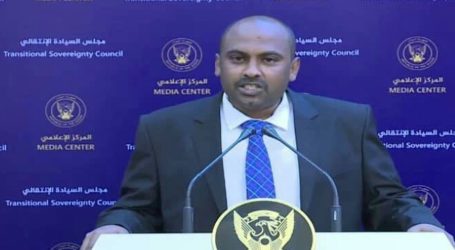MURSI SETS PARLIAMENTARY ELECTION DATE
 Cairo, 12 Rabiul Akhir 1434/22 February 2013 (MINA) – Egyptian President Mohammed Mursi on Thursday (21/2) stated parliamentary election will begin 27 April and end up June 2013.
Cairo, 12 Rabiul Akhir 1434/22 February 2013 (MINA) – Egyptian President Mohammed Mursi on Thursday (21/2) stated parliamentary election will begin 27 April and end up June 2013.
According to a written statement, The President called nation to take part in the four-stage voting, Anadolu Agency quoted by Mi’raj News Agency (MINA) as reporting on Friday (22/2).
In the first stage of the vote, Egyptian who live abroad will vote and three other stages citizen in Egypt will to and vote.
On the other hand, on Thursday (21/2) Shura Council issued law which bans member of Parliament from changing their political affiliation once elected to President Mohammed Mursi.
The Islamist-led administration hopes the election of the new parliament will help stabilise Egypt so an economy in deep crisis can start to recover from spasms of unrest and violence that have dogged the transition, according to Malasyian Insider report.
The new parliament will convene on July 6, according to a decree issued by Mursi. The Shura Council, the upper house of parliament, earlier adopted an electoral law that cleared the way for Mursi to set the date for the lower house election.
Under the new Egyptian constitution adopted in December, Mursi must secure parliament’s approval for his choice of prime minister, giving the chamber more power than it had under Mubarak, when it was no more than a rubber stamp.
Opposition groups have accused Mursi and the Brotherhood of seeking to dominate the post-Mubarak order, accusations denied by the Islamists but which have fuelled protests against his rule.
The opposition must now decide whether to take part in the vote and try to gain a foothold in Egypt’s elected institutions or boycott in an attempt to deny legitimacy to the process, analysts said.
“This confronts them with a real dilemma,” said Nathan Brown, professor of political science at George Washington University and an Egypt expert.
“If you have a majority that is very sympathetic to the president, then the president can do an awful lot,” said Brown. “If you have a parliament that is fractured, you could have a system of infighting and even gridlock.” (T/P03/E1)
Mi’raj News Agency (MINA)






